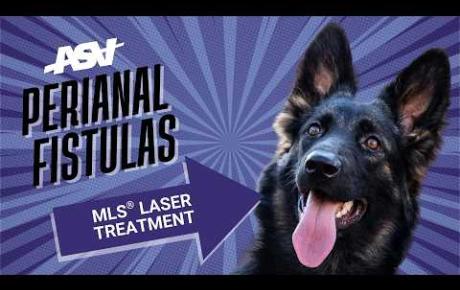MLS® veterinary laser therapy is an advanced therapeutic technology that uses a low-intensity laser emission to promote tissue healing, stimulate cellular regeneration, and reduce pain and inflammation.
Originally developed as a human therapy, it is now widely used in veterinary medicine for treating numerous acute and chronic conditions in pets and farm animals.
This veterinary laser therapy stands out because it is non-invasive, rapid, safe, easily adoptable and repeatable, well tolerated by the animals, and capable of offering visible improvements, often after just the first session.
Therapeutic laser and surgical laser: key differences
It is important to distinguish between:
- Veterinary therapeutic laser: reduces pain, inflammation, oedema, and accelerates functional recovery and tissue repair through photobiostimulation.
- Veterinary surgical laser: used for cuts and resections during surgical procedures.
MLS® Laser Therapy falls into the first category, as a non-invasive and effective treatment.
The MLS® pulse: patented and scientifically validated technology
The heart of MLS® Laser Therapy is the innovative pulse patented in Italy and the USA.
This system combines continuous and pulsed emissions at different wavelengths (808 nm and 905 nm), perfectly synchronised by the Multiwave Locked System, ensuring a harmonious and enhanced therapeutic effect.
The therapy was developed by ASAlaser and validated through biomedical research and international clinical studies.
The MLS® devices have received approval from the US FDA, confirming their safety and efficacy.
Benefits of veterinary laser therapy
- Anti-inflammatory effect: reduces swelling and pain by modulating blood vessels and reducing pro-inflammatory molecules.
- Analgesic effect: blocks the transmission of pain signals at the nervous level and raises the pain threshold.
- Cellular repair: promotes the regeneration of damaged tissue and healing.
- Improved circulation: increases the supply of oxygen and nutrients, promoting healing processes.
- Accelerated post-operative recovery: reduces recovery times after trauma or surgery.
During the session the animal feels no pain and the treatment often has a relaxing effect.
Disorders that can be treated with MLS® Laser Therapy
Laser therapy is indicated for a wide range of clinical conditions:
- Dermatological: wounds, ulcers, dermatitis.
- Neurological: neuropathies, chronic pain.
- Muscle and joint: tendinitis, arthritis, arthrosis, contractures.
- Orthopaedic and post-traumatic: fractures, atrophy, oedema.
- Oral: stomatitis, gum inflammation.
The therapy can be applied to dogs, cats, horses – as well as to all non-conventional and livestock animals, thereby becoming a versatile solution that can be integrated with traditional treatments.
Benefits for animals and owners
- Non-invasive and painless
- Safe and free from known side effects
- Customisable based on the disorder being treated
- Rapid results and often visible from the first session
- Improved quality of life for the animal
Owners experience tangible benefits within a few days, appreciating the rapid response and the absence of stress for their animals.
International scientific recognition
MLS® Laser Therapy has been dedicated an entire chapter in the book “Essential Facts of Physical Medicine, Rehabilitation and Sports Medicine in Companion Animals”, written by world-renowned experts and professors.
The text is considered a fundamental reference in physiotherapy, rehabilitation, and veterinary sports medicine, consolidating the scientific prestige and reliability of this method.
Last but not least, MLS® Laser Therapy boasts more than 100 scientific publications, collected here:
Why choose MLS® Laser Therapy
MLS® Veterinary Laser Therapy represents an innovative and complementary method to traditional treatments. It is an advanced technology that reduces pain and inflammation, stimulates cell regeneration, and accelerates tissue healing, without side effects.A modern, safe, and effective treatment that improves the lives of animals and offers new therapeutic options to veterinarians.








